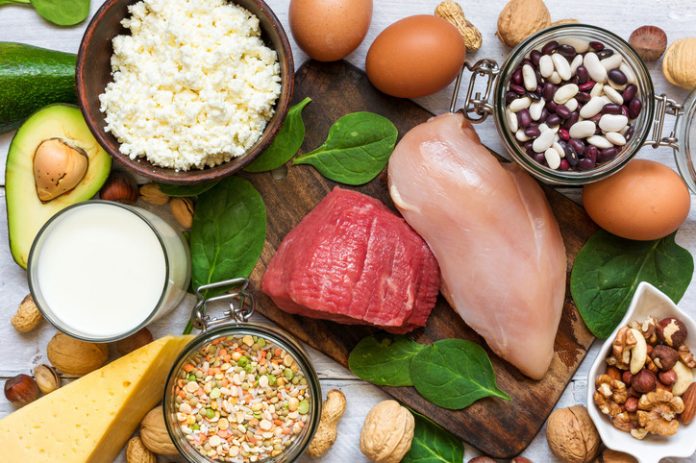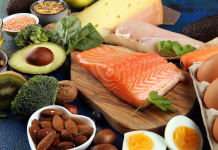These five signs will help you determine whether you’re packing enough protein into your diet.
Oven-Baked Chicken Drumsticks with Potatoes
Although protein deficiency is rare in the United States, it’s still important to consider whether or not you’re getting enough of the macronutrient in your diet. Protein needs are pretty individual, but a good general rule is to have 10 to 35 percent of your daily calories come from protein (that’s about 200 to 700 calories on a 2,000-calorie diet). And even though it’s likely that your daily recommended protein levels are easily met with a few servings of a day, some individuals such as older adults are at a higher risk for protein deficiency. If you’re concerned you’re not getting enough on a daily basis, here are five sneaky signs that you may be right.
1. Your Hair, Skin and Nails Are Brittle or Weak
When protein is digested, it’s broken down into amino acids that are used as building blocks for muscle tissue, hair, skin and nails. It’s important to get enough keratin—a structural protein that is formed by various amino acids—for healthy skin and nails. If you’re experiencing brittle hair and nails, it may be a sign that you aren’t consuming enough protein.
Studies also show that collagen—a structural protein found naturally in the tissue of our skin—can reduce wrinkles and keep your skin healthy and firm! So, if you notice premature sagging or sudden loss of elasticity in your skin, you may want to reevaluate your protein consumption.
2. You’re Experiencing Edema
Do you have puffy feet, ankles or legs that just don’t seem to go away? You might be suffering from edema—a condition that causes tissue to retain water. And although it can have many causes—including prolonged standing and sitting—protein deficiency is one of the many risk factors. Protein helps retain salt and water in the blood vessels, so a lack of protein—specifically albumin—can lead to water leakage into tissue that results in extreme puffiness.
3. You’re Always Fatigued
It’s normal to be tired after a long day at work or an intense workout, but if you’re suffering from fatigue at random times (that even a good night’s sleep won’t fix), you may have anemia. Anemia is caused by inadequate oxygen supply to your body’s tissue due to a low red blood cell count, which is often a result from insufficient iron, folate or B12. Since all of those nutrients are found in common protein sources like meat and eggs, anemia can be your body’s way of telling you that you’re not getting enough protein. (Unfortunately, B12 is mostly found in animal protein, so if you’re vegan you’ll want to ensure you’re eating fortified foods, nutritional yeast or taking a B12 vitamin.)
4. You Get Sick Often
Since protein plays an integral role in immune system function, certain signs—like getting sick more often than normal, prolonged sickness or trouble healing wounds—may indicate that you have a low protein intake. If any of these symptoms sound familiar, you may want to consider incorporating some of these high-protein foods into your diet. Always talk to your doctor if you are concerned about your immune health or if you have wounds that aren’t healing.
5. You’re Hungrier Than Usual
Protein has more staying power than carbs, so if you’re hungrier than usual after a meal, you may not be consuming enough protein. If you’re struggling to regulate your appetite, try adding some of our favorite healthy high-protein recipes to your weekly routine.




























